Jack Harlow is one of the leading names in the next generation of Hip Hop stars. His breakout year in 2020 elevated him to new heights, and his debut album That’s What They All Say debuted at No. 5 on the Billboard 200 chart giving Harlow his first top 10 album.
Although he’s enjoying all the success from his hard work, the Louisville rapper is in a culture created by Black people that looks at his race as culture vultures. Harlow has to be mindful of his position in the culture and how to maneuver it without being the topic of criticism.
During a recent interview with Footwear News, Jack Harlow reflected on his role as a white rapper and how his Black fans and peers accept him despite the shade that continues to be thrown at him over award nominations and album covers.
“I feel blessed to have a voice in this period because, one, I’m not a street artist, and two, I’m not Black,” Harlow said. “The only thing keeping me here right now is that level of authenticity, of being myself.”
Harlow credits the shift in Hip Hop music in the early 2010s where rappers like Odd Future and Mac Miller were inspiring fans to be themselves. According to him, if it weren’t for that shift, white kids wouldn’t feel comfortable being themselves and would have to be something they’re not to feel accepted.
“All of this stuff was coming into the fold and it had this energy surrounding it of, ‘We’re letting the white kids come to the party. We’re all in this together,'” Harlow added, reflecting on a conversation he had with his close friend Nemo Achida. “He feels like the country going into these new civil rights moments almost shifted away from, ‘Let’s have the white boy at the party.’ It became less about let’s all be diverse together and turned back into Hip Hop being, ‘It needs to be a Black genre.’ That’s just been the natural transformation of things, I think.”
Harlow took to the streets when protests broke out for Breonna Taylor’s murder, which also happened in the rapper’s hometown. He could’ve tweeted his support or posted a video on Instagram to denounce police brutality, but he knew that wasn’t going to be enough to call for justice for the Black community.
“The things I was doing last summer, any fans who didn’t feel like criticizing the police or were on the other side of things, I was going to weed them out,” Harlow added. “That could have been a moment for them to no longer be fans. But what is important is that I lead by example for all the white kids looking at me. This is what you do. You don’t just enjoy Black culture. You stand up next to Black people in a time of need.”
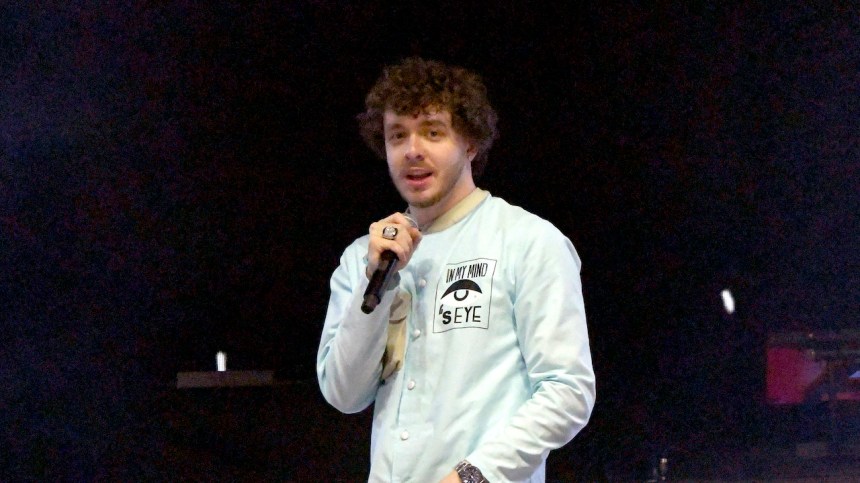

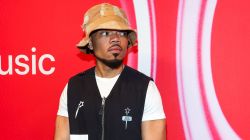
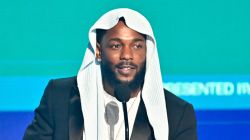
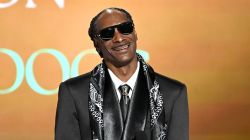


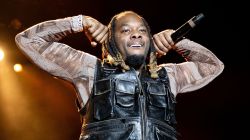
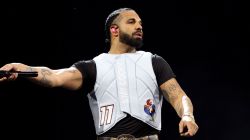
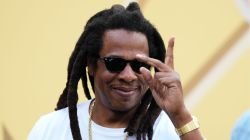
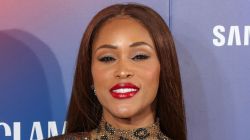
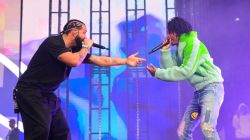
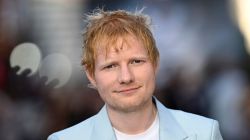

Lots of racism and white guilt in this article. “I have some talent. Also I’m sorry for being white”. What a joke. Let’s be clear. A culture vulture can have any skin color. Birds of a feather and all….
Unpopular opinion – posts popular opinion
That no one will say is popular opinion cause the small voice of a few outweighs the voice of many. I get a lot of hate for my posts. I am easily one of the most disliked on here cause I say what most people think but won’t say for fear of being ostracized. And yes, to reply to the one above you. I read the article.
Speak for yourself and leave it at that. You’re disliked because of what you say in your posts
That was for UnPopularOpinion. This website sucks
Again, super popular opinion lol what was racist about the article? Was it him pushing for authenticity or saying to stand up for something that terrifies you? If he wanted to be relevant, he probably would have posted it or made a video… It’s like y’all don’t read the articles lol
This sounds more to me like a dude who is terrified of being “canceled”. Sounds like he will say and do anything to stay on the right side and always do the politically correct to maintain relevance. Corny.
I don’t expect most white males to fully understand black people or our culture,but when they do it SHOWS with statements like this. Everytime a white person tries to understand us, support us in spite of racism from their own,call out racial prejudice,or hate from other whites,they get told they have WHITE GUILT. Why not look at it like respect,love,empathy,or just acknowledging there is a HISTORICAL difference, in the way blacks are seen and treated in this stolen nation than whites. I used to try to educate these 2 white brothers who were friends of mine. One stayed ignorant but said he was my “best friend”,the other grew in mindset,only hangs around black people,is a social media star,and uses his PLATFORM to spread posivity,awareness,and equality.
there is no such thing as black culture like there is no white culture. there is black cultures. Jamaican Culture is not like Nigerian Culture, German Culture is not like irish culture etc. Hip Hop is Black American Culture which is based on American Culture.
You’re so ignorant on this topic that it shows how trash this nation’s education system is. Especially when it comes to humanity and history! Hip hop IS black culture with Latino culture sprinkled in,American culture is EUROPEAN CULTURE and has nothing to do with hip hop,stop trying to take credit for our inventions colonizer lol
So please explain, what is european culture?
“Lol” explained it to you. Stop trying to cherry-pick for an answer you like. Shut up.
Another bigot.
Ignorant guy who never been out of your hometown i guess.
I guess you think mayo is in every meal in every country in europe aswell?
What a damning reply. You got me dead to rights, dude. You’re the king of the internet…shut the hell up, man. You sound stupid.
And you sound very enlightened, LOL. I know for sure i know more about African history and black history in general then you know about European history.
Please explain.
What is european culture?
Pillaging, raping and taking over other people’s land and calling it “manifest destiny”
That`s cute.
Enjoy your bigot life.
There is no “black culture”
Black people arent some monolith that are all under 1 culture
“Understand black people” as if being black makes you think a certain way
Your skin color dont determine the way you speak, think, what you believe in etc
And the irony of you talking about positivity when you’re generalizing all white people and calling everyone colonizers
Music isnt a color, its a fucking sound.
If you can spit,spin,Graff,or beatbox you are hip hop. You could be Albino Eskimo Amish Samoan. Skill is what counts.smd he’s right. Be you. That’s the point of it all in the first place. If you aren’t real you whack. Rick Ross is a former C.O. telling about gangsta shit. How da fuck?!ike nah you a cop cuz. Be true.
The 4 elements of hip hop is the mid 80s corniest shit ever. Graff existed before any of those “elements” and all those early guys were rock and disco heads. Hip Hop literally just refers to dancing in the club (see Herbie LoveBug) and to anything that was popping at the time. Let’s drop this whole 4 elements bullshit that became the narrative for all you back packing losers.
Ok if you want to go down that road then blacks are culture vultures in white culture, eg. Wearing clothes owned, made and designed by white Europeans, driving cars owned, made and designed by whites, Blacks in California and the general US ripping off Mexican cholo culture and trying to pretended they invented banging…….the list goes on and on. I’m not trying to hate but my point is you have to draw the line somewhere and stop focusing on race all the time , blacks are as much culture vultures as every other race is too.
So according to your logic if you do anything at all, it makes you a culture vulture. Anyone using an air conditioner is trying to be black. Anyone who uses a water bottle is trying to be white. Anyone who learns spanish is trying to be hispanic. You sound dumb as fuck. Get off the internet
That’s the whole point of the comment retard….duh. It’s the same logic being used in the hiphop is “black culture” bs. The whole point of the comment is to show that if you’re going to be ridiculous about something like that, then it works both ways. I’m a Dominican of mestizo decent and think that it’s stupid af to be constantly making everything about race all the time. Do you think black players shouldn’t be allowed to allowed to play soccer because it was invented by whites and it’s their culture?
Yup. They’re on the white man’s internet, using the white man’s electricity, using the white man’s CPU or smartphone. Speaking ENGLISH. It is ridiculous. Everyone is a vulture then. I care about if your music is good or not. I don’t listen to Harlow. He can rap, it’s just not my style. I doubt he can REALLY rap. Like, have a DJ spin instrumentals and watch him spit.
Dude, you sound like an idiot. Culture is more than clothes and cars. Do you think hip-hop culture is just rap music? That’s what it sounds like. The things you’re comparing to try to make your point don’t work. You sound like you’d criticize doctors over who invented the stethoscope they use instead of speaking on the medical field in general. Get out of here with that trash.
Black ppl are like a charity that needs consistant attention and coddling. Its pathetic
The first and foremost issue here is: who the hell listens to this guy’s music? Wtf?
I know right? None of the white people I know listen to him and i sure don’t myself… How did this fool debut in the top five? I don’t think I’ve heard any of his music and if I did I didn’t realize it which means it was forgettable at best. They need to get rid of this dude and G-Eazy.
G-Eazy makes me cringe. Just the whole thing about him seems so forced. It’s painful as hell to watch or hear something. I just avoid it.
Wow. That’s some weirdo self hating bullshit. Hahahahaha
“Be yourself” isn’t just some white rapper mantra, these young black rappers got the same problem…
Amazing how fragile ya’lls sense of self is in these comments. You’re on a hip hop forum saying shit is too black. I’d call it ironic but I’m guessing you have no idea what that means. If this article made you feel called out for your consumption of black culture, just say that. ?
There is no “black culture”
Black people aren’t a monolith that all are under 1 culture